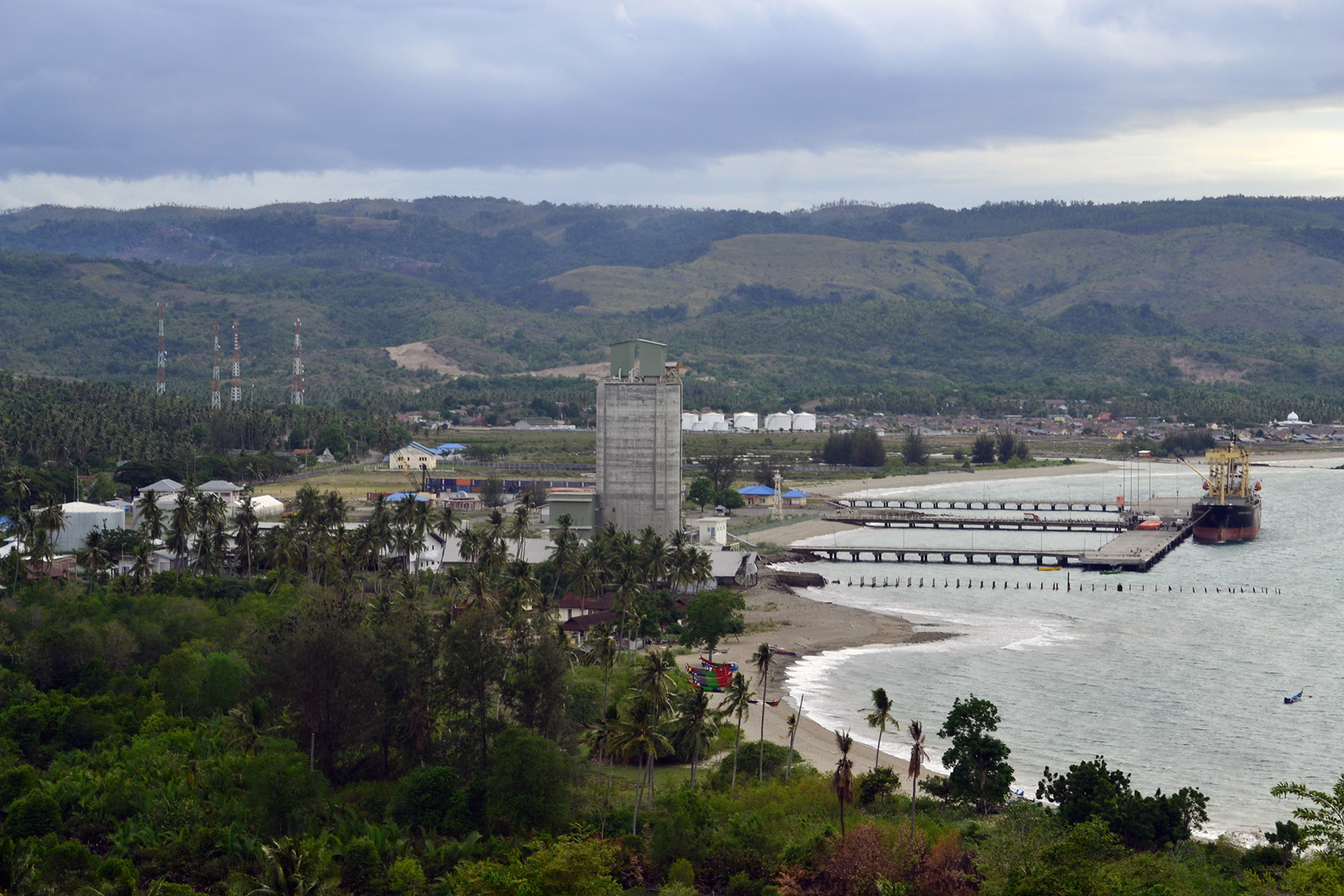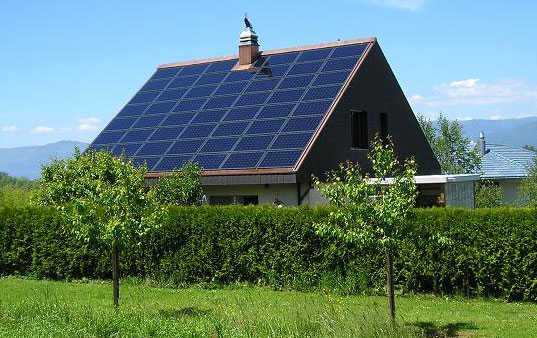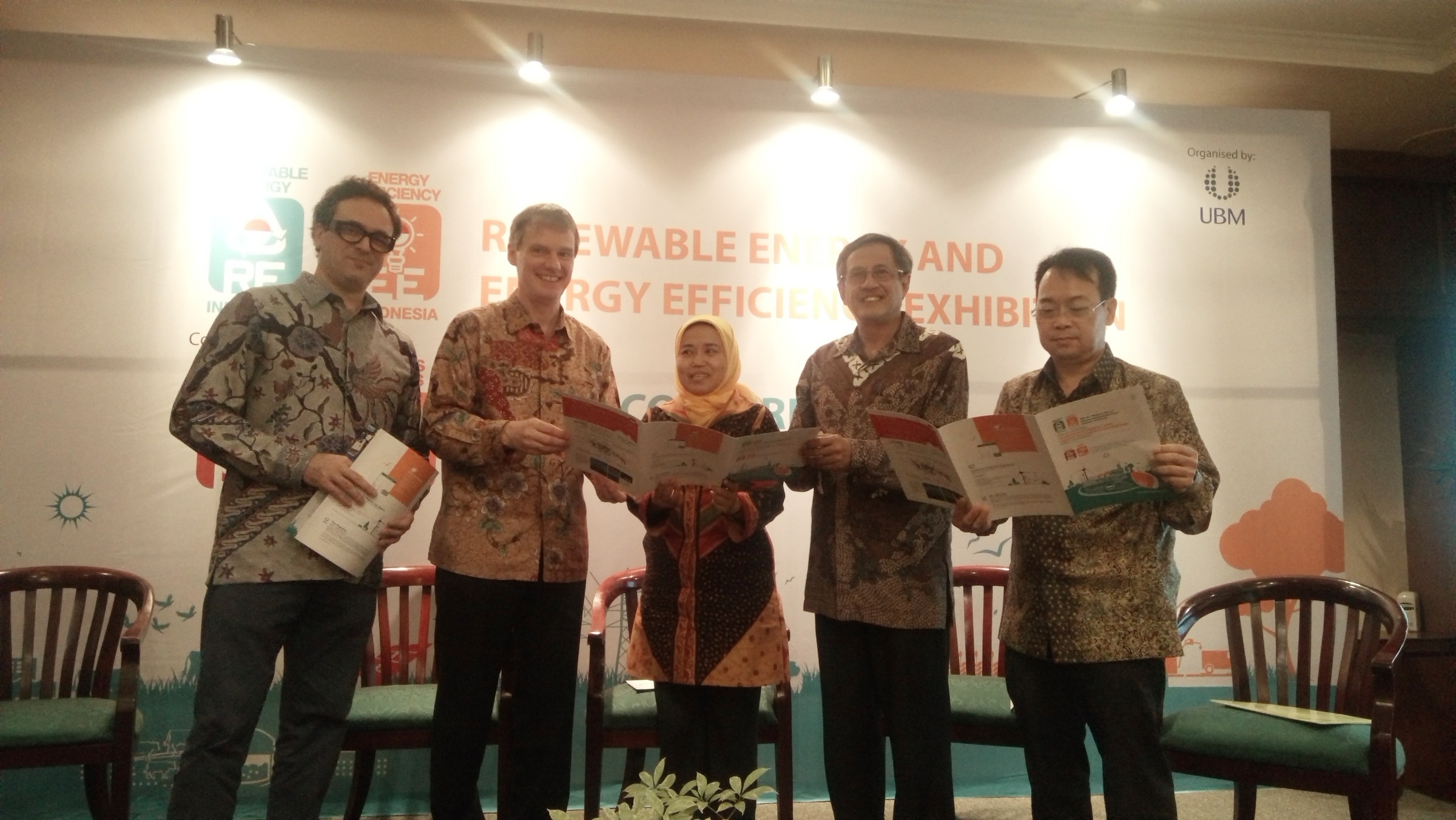OPTIMIZING THE POTENTIAL OF RENEWABLE ENERGY IN INDONESIA

The government has iterated its commitment to support renewable energy as the country’s proven oil reserves of 3.8 billion barrels will suffice to cover national consumption for only over a decade. Indonesia has plenty renewables, from hydropower to solar energy. The country is estimated to have 28 gigawatts (GW) of geothermal potential and 75 GW of hydropower potential, almost twice the country’s current electricity demand. In total, potential renewable energy in the archipelagic country is estimated to reach more than 300 GW.
In 2015, hydropower and geothermal power plants contributed just 5.9% and 4%, respectively, to the country’s electricity power, according to data from state-owned electricity company PLN. Coal dominates electricity production, at 55.7 percent, followed by gas (25.3 percent) and diesel fuel (8.2 percent).
Indonesia : A Revolution in Energy Production

Semen Indonesia, the nation’s largest cement maker, has achieved major savings in its operating costs by replacing coal with natural waste as fuel for electricity generation (husks and shells from tobacco, cashew and coconut production). As a result, Semen Indonesia’s costs of revenue dropped 2% year-on-year in the first half of this year to Rp 7.5 trillion – US$ 577.5 million (Source: Jakarta Post).
The resource mix in the country is also changing. Prices for solar power modules have fallen 70% in the past six years. Wind power costs have dropped 58% in the past five years. Battery prices have fallen approximately 14% annually since 2007 (Source: Energy Manager Today.) Therefore, renewable energy has become a concrete, affordable, clean and reliable alternative for corporates and private users in Indonesia willing to secure stable electricity delivery at fixed prices.
In fact, unlike historic industry shifts that have been spurred by policy, these major technological advances and savings are occurring largely despite policy, because the transition leads to great improvements in cost cutting, energy efficiency, reliability, and environmental protection.
To join the discussion on all developments in this industry in the country sign up for Renewable Energy Indonesia, the only trade show in Indonesia addressing exclusively Renewable Energy, which will be held at the Jakarta International Expo, Kemayoran, on 29 to 31 March 2017. The exhibition, organized by UBM plc, aims to be a platform that brings together professionals, investors and stakeholders with a sharp and exclusive focus on renewable energy and energy efficiency in order to exchange knowledge, best practices, resources and information.
Conference, seminars, workshops, debates and exhibitors’ presentations will add into the mix, and will complement the 3 days together with a business matchmaking platform
ABOUT UBM
Owned by UBM plc listed on the London Stock Exchange, UBM Asia is the largest trade show organiser in Asia and the largest commercial organiser in China, India and Malaysia. Established with its headquarters in Hong Kong and subsidiary companies across Asia and in the US, UBM Asia has a strong global presence in 24 major cities with 32 offices and 1,300 staff.
UBM Asia was awarded ‘Asia’s Most Reliable Trade Show Organizer Award’ in Hong Kong’s Most Valuable Companies Awards (HKMVCA) 2016.GE Power CEO: Indonesia Is a Huge Opportunity
Steve Bolze, president and chief executive officer at GE Power, discusses Indonesia’s plans to bring electricity to some of the smaller islands, the outlook for energy across Asia and the company’s strategy in Asean. He speaks toBloomberg’s Yvonne Man on “Daybreak Asia.” (Source: Bloomberg)
New Stimuli For Renewable Energy

In the past weeks some apparently unrelated, seemingly negative news, have on the contrary offered additional solid reasons for the development of renewable energy in Indonesia, and in particular Solar for commercial and private use.
Acting energy and mineral resources minister Luhut Pandjaitan announced in late August that only around 25GW of the government’s ambitious project of generating an extra 35GW of electricity would be available by 2019. Nevertheless, energy consumption will continue to grow, and will need alternative sources to fulfill demand thus fostering the creation of companies like Sun.
Concurrently, no progress is seen in the latest oil, gas incentives proposed by the government. The changes are unlikely to encourage oil and gas players to significantly boost their current activities amid low crude prices (Source: ReforMiner Institute).
Finally, a newly released Greenpeace report suggests that the electricity costs of PLTUs are around $51.22/MWh. However, when health costs are taken into account, the cost rises significantly to $152.65/MWh: “The cost becomes higher than any other types of renewable energy,” said Hindun Malaka, Greenpeace’s climate and energy campaigner. He added that biomass and solar PV-generated forms of energy cost $112.76/MWh and $108.07/MWh, respectively.
“Find out more on how to exhibit”
Indonesia : Cheap Renewable Energy For Private & Utility Scale

The cost of most renewable energy systems for both private use and utility scale projects have been reduced by so much that in several instances they have reached parity with fossil fuels, or are even cheaper. The most effective progress has been made in photovoltaic systems, while concentrated solar power, biomass, wind energy and hydro-power have greatly improved payback periods too.
In Indonesia the average price charged on electricity bills is 0.11 USD per KWh. This cost is deemed to increase since by 2018 subsidies will be abolished. The cost of electricity derived from solar panels in Indonesia ranges between 8 to 13 cents / KWh, depending on location and capacity installed. Payback time is about 6 years. Cost of production with fossil fuels is similar or higher, with diesel topping the list at about 23/25 cents per KWh. (Sources: MEMR, PLN, ADB). This makes solar an extremely attractive alternative.
To be informed on all developments in this industry and act upon them sign up for Renewable Energy Indonesia, the only trade show in Indonesia addressing exclusively Renewable Energy, which will be held at the Jakarta International Expo, Kemayoran, on 29 to 31 March 2017. The exhibition, organized by UBM plc, aims to be a platform that brings together professionals, investors and stakeholders with a sharp and exclusive focus on renewable energy and energy efficiency in order to exchange knowledge, best practices, resources and information.
Conference, seminars, workshops, debates and exhibitors’ presentations will add into the mix, and will complement the 3 days together with a business matchmaking platform.
ABOUT RENEWABLE ENERGY
Renewable Energy Indonesia, a B2B trade show with a uniquely clear focus on the spectrum of renewable energy and energy efficiency solutions available on the market will showcase resources, ideas, cutting-edge machinery, equipment, technology – including the latest Wind and Solar Power systems, Thermal, Hydro-power, Bio-mass – and the innovative financing solutions needed to foster the development of this strategic sector in Indonesia. Part of the very successful series of UBM events on Renewable Energy.
OPTIMIZING THE POTENTIAL OF RENEWABLE ENERGY IN INDONESIA

Not withstanding its great potential, production of renewable energy in Indonesia still accounts for just around 6.8 percent of the total. The government has pledged to foster the development of renewable sources through direct investments, public private partnerships, and foreign investments.
The development of renewable energy is an imperative if the country wants to overcome dwindling fossil energy resources and tackle environmental issues.
Tri Mumpuni – CEO of Institute of Public Business and Economic (IBEKA), attending the press launch of Renewable Energy Indonesia said: “The economic growth will boost domestic energy needs and this will in turn open up opportunities for public and private investments. The potential increase in renewable energy and energy efficiency in Indonesia is remarkable.”
Tri Mumpuni added, “More than 60 million Indonesian children do not enjoy full access to electricity. Based on a survey conducted by IBEKA, around 33,000 villages in Indonesia are not yet connected to any grids. All parties should cooperate and support each other to improve the nation’s energy production through renewable energy and especially in remote areas. In the process, a trade event such Renewable Energy Indonesia can definitively play a key role.”
Christopher Eve, President Director, PT UBM Pameran Niaga Indonesia said: “We are proud to launch Renewable Energy Indonesia, which will be held at the Jakarta International Expo, Kemayoran, on 29 to 31 March 2017. This exhibition aims to be a platform that brings together professionals, investors and stakeholders with a sharp and exclusive focus on renewable energy and energy efficiency in order to exchange knowledge, best practices, resources and information. “
“Conference, seminars, workshops, debates and exhibitors’ presentations will add into the mix, and will complement the 3 days together with a business matchmaking platform.”
ABOUT UBM
Owned by UBM plc listed on the London Stock Exchange, UBM Asia is the largest trade show organiser in Asia and the largest commercial organiser in China, India and Malaysia. Established with its headquarters in Hong Kong and subsidiary companies across Asia and in the US, UBM Asia has a strong global presence in 24 major cities with 32 offices and 1,300 staff.
UBM Asia was awarded ‘Asia’s Most Reliable Trade Show Organizer Award’ in Hong Kong’s Most Valuable Companies Awards (HKMVCA) 2016.




